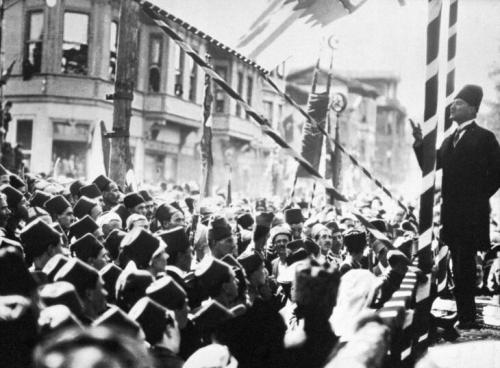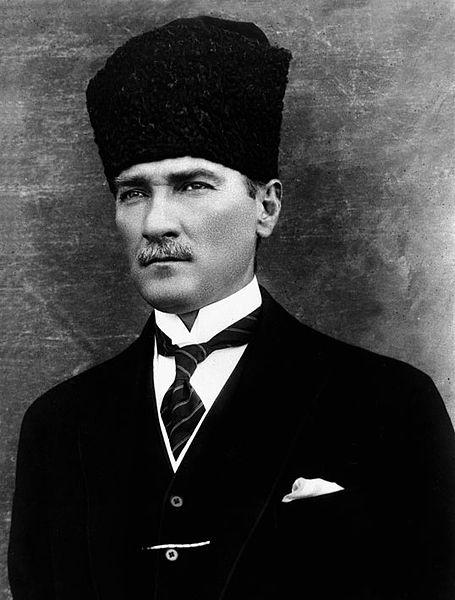by Ilona Altman
Mustafa Kemal Atatürk is a monumental figure in Turkish history. After leading the successful Turkish War of Independence against the occupying Allied forces, Atatürk entered the realm of politics and initiated a bold agenda of social, political and economic reforms. Known as Kemalism, these reforms sought to transform Turkey into a modern and secular nation-state that would be equal to–and not subject to–European powers. Almost a century after the Republic’s founding, Kemalism remain a cornerstone of Turkey’s government, economy and society. Moreover, Atatürk’s likeness continues to adorn statues, paintings and memorials around the nation he built.

For Texas History Day, Ilona Altman explores the historical significance of Atatürk and his “Kemalist” agenda in the website “The Emergence of Atatürk: A Turning Point in Turkish History.” In the site’s process paper, Ilona talks about her personal and historical interest in this topic:
“We strolled down the streets of Istanbul, walking into teashops, rug stores, and bazaars. Every place we went had a unique aura. Oddly enough, every place had one consistent quality – in all of the shops, a portrait of a man known as “Atatürk” was hanging on a wall. Our family made a game trying to find “the poster” in each shop, and I suddenly came to wonder who exactly “Atatürk” was. What had he done to earn such recognition? I began drowning in questions, so upon our arrival home, I began researching.”

“The emergence of Atatürk as Turkey’s president was an immense turning point in Turkish history, fitting perfectly with the NHD Theme “Turning Points in History: People, Ideas, Events.” Atatürk’s emergence through presidency was a turning point that allowed for the movement toward a modern and successful Turkey to begin. By becoming president, Atatürk had the power to implement reform. Turkey’s successful embrace of Western ideals makes it a role model in the Middle East today, demonstrating that a successful incorporation of Western secularism, principles, ideals, and progressive economy with an Islamic religious consciousness is possible. Turkey demonstrates that western ideas can build a middle class and strong economy. Learning about Ataturk made me realize that individuals matter – one person truly can change the world.”
Photo Credits:
Atatürk speaking before a crowd in Bursa, Turkey, 1924 (Image courtesy of Wikimedia Commons)
Atatürk’s visage carved into rock, Izmir, Turkey (Image courtesy of Wikimedia Commons)
Portrait of Atatürk, 1923 (Image courtesy of Wikimedia Commons)
Ilona Altman
Junior Division
Individual Website